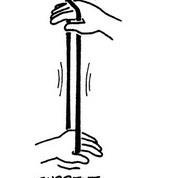Our Podcast
Interested in Subscribing to our blog?
3 Tips on Long-Term Career Thinking (E199)
Welcome back! As Transition Coaches, a topic that we often help officers think through as they are making decisions about getting out of the military is short-term thinking versus long-term career thinking. It is completely natural for officers leaving the military to focus and think in the short term. They have a future date in which they are going to exit the military, usually with in the next 12 months or less, and they need a plan. Because of this, there are typically two main issues that tend to drive decision-making in the transition. First, officers now have full autonomy to make a decision about their future and second, officers, at least while in the military, have never had to fully manage their careers or have had full power to make important career decisions.

In this episode, our three Transition Coaches, Joel Junker, Pete Van Epps and Brock Dudley meet to has a discussion about a topic that we discuss often with military officers – short vs. long-term career thinking and decision making.
In the first part of our discussion, Joel sets up the discussion by referencing The Fifth Discipline by Peter Senge. In the book, there is an illustration where Senge describes a person envisioning their future self vs. their current reality. In the gap between where you are and your current reality, there is tension. Tension is good, but working through that tension also takes time, discipline, and resolve. Through the years, we’ve seen countless military officers take this approach to their transition. They take a realistic inventory of where they are today and where they want to be 5-10 years from the transition; then, they build a plan. That plan sets up the tension because it often means you will sacrifice some elements of short-term gain for ultimately achieving your professional goal and achieving your vision.
In the discussion, we were each able to weigh in on critical components of long-term decision-making and created a short, actionable list for military officers who want to align their transition strategy with a focus on their future career vision.
- Set a vision for yourself. Look out to the next 5-10 years. Define where you want to take your career and start doing things today that will support that vision.
- Write your vision out. Get it out of your head and onto a piece of paper or somewhere you will see it regularly. It will keep you focused and motivated and help you to do the type of activities that support moving toward your vision.
- Tell somebody. Find people in your life who you trust and who speak the truth to you. There is great power in having accountability in your life to help you achieve your goals, challenge you to be the best version of yourself, and help you reach your goals.
If this is something you are interested in exploring, give us a call. Our company is completely dedicated to helping military officers through a decision making process and career search strategy that is designed to you you reach your goals and dreams.
Pete Van Epps || (210) 874-1519 || pete@cameron-brooks.com
If you want to learn more about Cameron-Brooks, you can find more information on your website and our YouTube Channel.
Podcast: Play in new window | Download
Subscribe: RSS






